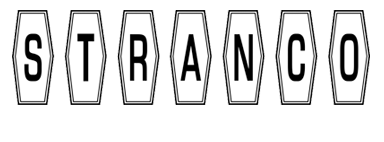Have you ever purchased an electronic devices or other products online, believing that the low price was to good to be true? Most experts would say that it probably is. Counterfeiting goods is a serious global problem where criminals create and distribute lower-quality products under a brand name without permission. The International AntiCounterfeiting Coalition stated that these fake goods can be found in nearly every industry, including automobile parts, apparel, electronics, consumer goods and pharmaceuticals.
While counterfeiting has been a common practice for years, the rise in modern technology has made the problem global and far worse to monitor and control. The vast majority of these fake goods come from overseas. In 2012 alone, 84 percent of counterfeit products seized by the U.S. Customs and Border Protection came from China, according to Fortune.
How serious of an issue is counterfeiting?
An estimated 7 to 8 percent of annual worldwide trade is in counterfeit foods, according to the World Customs Organization, FBI, International Chamber of Commerce and Interpol. While a seemingly small figure, this percentage translates into $512 billion lost in global sales, while the U.S. is said to lose anywhere from $200 to $250 billion. In 2014, U.S. Customs and Border Protection seized $1.2 billion worth of counterfeited goods, Manufacturing Industry Advisor explained.
"It's a very profitable business," Alan Zimmerman, a professor at The City University of New York who writes about the impact of counterfeit goods on companies and the economy, told Fortune. "You can get into business at very low cost, and the penalties if you get caught are very small compared to other illegal activities."

In the past, counterfeit goods were typically sold on street corners, making the entire buying process less legitimate. However, due to the rise in online retail platforms such as Amazon and eBay, counterfeit sellers can blend in easily with more reputable vendors. Even the Chinese e-commerce industry giant Alibaba has been fighting counterfeiting issues since its launch in 1999. For example, CNBC reported that 40 percent of Amazon's sales now come through third-party marketplaces.
While not all of these are false vendors, many reputable third-party sellers are seeing their sales stagnant or drop because of lower-priced, counterfeit goods. Many unsuspecting Amazon customers see low prices and that the products seem legitimate and buy, never knowing that they may have purchased a counterfeit item.
Some advocates against counterfeiting, such as Chris Johnson, an attorney at Johnson & Pham LLP, told CNBC that the online retailer is "making money hand over fist from counterfeiters," and isn't trying to stop them. Others, such as Walter Price, a portfolio manager at Allianz Global Investors, disagree.
"Regulatory bodies struggle to confiscate and prosecute criminals."
"If customers can verify that they've bought counterfeit goods, Amazon will push sellers to refund the purchase or they kick the sellers off the site," Price said. "Amazon does stick up for the consumer. They put the consumer first, not the merchant."
Even with online retailers fighting counterfeiters on their own websites, they still may require federal or international assistance to truly abolish the problem. However, regulatory bodies struggle to detect, confiscate and prosecute criminals making fake goods effectively due to poor international coordination and communication, weak anti-counterfeiting laws and a shortage of financial resources.
The pharmaceutical industry is hit hardest
One of the largest hit business sectors for counterfeiting is the pharmaceutical industry. While manufacturers hurt due to drug counterfeiting, patients hurt the worst. The World Health Organization reported that 20 percent of counterfeit medication has the wrong quantities of active ingredients or contains incorrect ingredients. Meanwhile, an estimated one-third of these drugs have no active ingredient at all. A 2007 Pfizer report revealed that fake Pfizer medication has been uncovered in at least 75 countries throughout the globe.
PhRMA explained that consumers should be wary when using online pharmacy websites to buy prescription drugs and only purchase from those with the Verified Internet Pharmacy Practice Site seal. This means that the site is a legitimately licensed pharmacy that is able to sell FDA-approved medications. A few additional cautionary pieces of advice PhRMA has for consumers is to avoid sites located outside the U.S., don't require prescriptions, aren't equipped with a licensed pharmacist to answer questions and don't indicate a physical address.
While all of this advice may keep consumers protected, what can manufacturers of pharmaceutical products and other goods do to avoid falling victim to counterfeiting criminals?
"Businesses should carefully monitor and audit their supply chain."
How can manufacturers protect against counterfeiting?
Naturally, manufacturers must be proactive to prevent counterfeit products from damaging their bottom line. The International Trademark Organization advises that there are many technological and business-savvy ways companies can prevent, or at least minimize the effects of counterfeiting. First, companies should register their trademarks in any countries where they sell, make, ship or store products.
Also, manufacturers should record their trademarks with national customs whenever possible. Next, they should provide training opportunities for employees to identify and act on any potential counterfeiting problems. Businesses should also carefully monitor and audit their supply chain, along with adding authentication devices to any genuine products, such as anti-counterfeit packaging and applying dynamic thermal transfer barcode labels to their products.
At Stranco, we provide durable thermal transfer barcode labels for manufacturers who need improved visibility of their entire supply chain. With this comprehensive supply chain view, businesses can spot counterfeit issues more quickly and resolve the issue without losing significant profits. Contact one of our representatives today to learn more about our wide selection of high-quality products!

